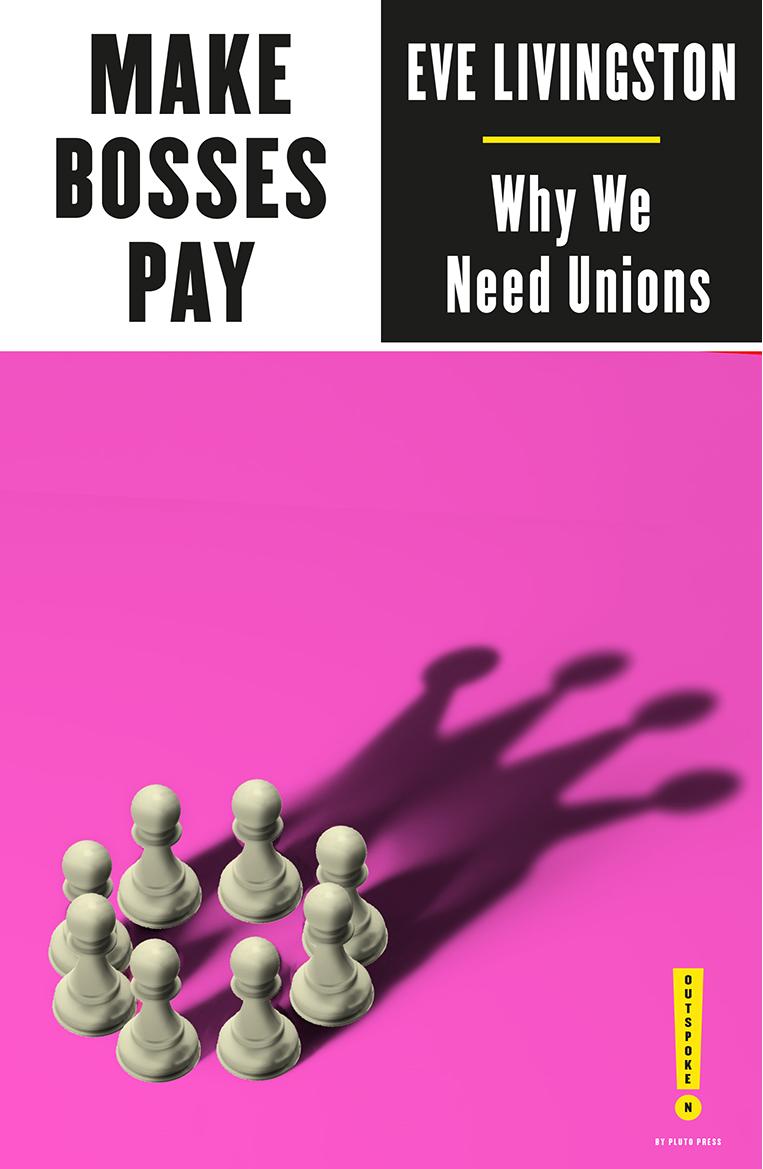Make Bosses Pay: Why We Need Unions by Eve Livingston

Author:Eve Livingston [Livingston, Eve]
Language: eng
Format: epub, pdf
Tags: Politics
ISBN: 9780745341620
Goodreads: 57550091
Publisher: Pluto Press
Published: 2021-09-20T00:00:00+00:00
âI think if I could click my fingers,â she continues, âit would be to bring everybody up to speed on how divisive that approach to emancipatory politics has been and will continue to be, and how it ends up feeding some of the very types of issues that we as a movement are trying to address.â
Towards liberatory unionism
In April 2019, when strip club dancers in Sheffield and Manchester found themselves the unwitting subjects of covert filming, it was their union they first turned to. Formed just a year earlier, the Sex Workers United (SWU) branch of United Voices of the World sprang into action to call out the violation and to seek legal recourse. The perpetrators? The Womenâs Equality Party, in a staggeringly misguided attempt to campaign against the existence of strip clubs.
That many elements of sex work remain criminalised legitimises a conditional solidarity from both the feminist movement and the workersâ one, who can gift and withdraw their support based on their own moralising about womanhood and work. Despite the immediate dangers faced by a workforce dominated by societyâs most marginalised women, the majority of sex workers are unable to meaningfully unionise because their work is not yet recognised as such and they have no workersâ rights to realise. Sex worker collectives like SWARM and the English Collective of Prostitutes have long campaigned for decriminalisation on this basis, arguing that moral assessments of sex work are irrelevant in a discussion about safety and rights. In their book Revolting Prostitutes, sex workers Molly Smith and Juno Mac write: âA key struggle that sex workers face in feminist spaces is trying to move people past their sense of what prostitution symbolises, to grapple with what the criminalisation of prostitution materially does to people who sell sex . . . Nobody can build a better, more feminist world by treating sex workersâ current material needs â for income, for safety from eviction, for safety from immigration enforcement â as trivial.â17
Yet still, certain sections of the feminist and workersâ movements have consistently opposed the decriminalisation of sex work and the categorisation of it as work at all, holding sex workers to higher standards than almost any other workers over whether their work is empowering, aspirational or enjoyable. By contrast, an organising priority for the SWU branch of the United Voices of the World union is to achieve âworkerâ status for the UKâs sex workers, a classification which would make them eligible for employment rights and protections. The UVW were able to organise in this way, and respond quickly and effectively when its members were violated, because it has embraced unionism in a new model â entering unorganised workplaces, backing grassroots actions, and building structures in which members truly have power. The SWU also organises in partnership with sex worker support group x:talk and decriminalisation campaign Decrim Now, and therefore situate themselves at the intersection of feminist and workplace organising, making the case that it is more often than not austerity and poverty which
Download
Make Bosses Pay: Why We Need Unions by Eve Livingston.pdf
This site does not store any files on its server. We only index and link to content provided by other sites. Please contact the content providers to delete copyright contents if any and email us, we'll remove relevant links or contents immediately.
Harry Potter and the Goblet Of Fire by J.K. Rowling(3036)
Never by Ken Follett(2877)
Shadow of Night by Deborah Harkness(2716)
Ogilvy on Advertising by David Ogilvy(2681)
Zero to IPO: Over $1 Trillion of Actionable Advice from the World's Most Successful Entrepreneurs by Frederic Kerrest(2387)
The Man Who Died Twice by Richard Osman(2293)
Machine Learning at Scale with H2O by Gregory Keys | David Whiting(2281)
Book of Life by Deborah Harkness(2263)
How Proust Can Change Your Life by Alain De Botton(2259)
My Brilliant Friend by Elena Ferrante(2221)
0041152001443424520 .pdf by Unknown(2218)
The Tipping Point by Malcolm Gladwell(2204)
How to Pay Zero Taxes, 2018 by Jeff A. Schnepper(2098)
Will by Will Smith(2039)
Purple Hibiscus by Chimamanda Ngozi Adichie(1981)
Hooked: A Dark, Contemporary Romance (Never After Series) by Emily McIntire(1944)
Borders by unknow(1785)
Rationality by Steven Pinker(1763)
Daughter of Smoke and Bone by Laini Taylor(1742)
